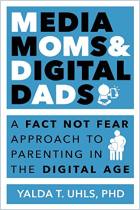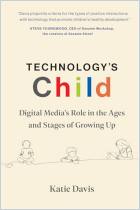Join getAbstract to access the summary!

Join getAbstract to access the summary!
Maryanne Wolf
Reader, Come Home
The Reading Brain in a Digital World
Harper, 2018
What's inside?
Why reading is important for children and the world.
Recommendation
Professor Maryanne Wolf urges you to respect the time and space of deep reading in a world of technological distractions. She explains the complexities of research in neuroscience and psychology about how engaging with tech alters the ability to read. While she raises numerous issues, she also proposes solutions. Wolf says kids are the unwitting subjects of a massive social experiment in technological proliferation. Her work articulating tech’s neurological and intellectual impact is profound, and relevant for parents and educators.
Summary
About the Author
Maryanne Wolf is the director of the Center for Dyslexia, Diverse Learners, and Social Justice at the UCLA Graduate School of Education and Information Studies,” and the former John DiBiaggio Professor of Citizenship and Public Service at Tufts University. She also wrote Proust and the Squid: The Story and Science of the Reading Brain and Tales of Literacy for the 21st Century.



















Comment on this summary